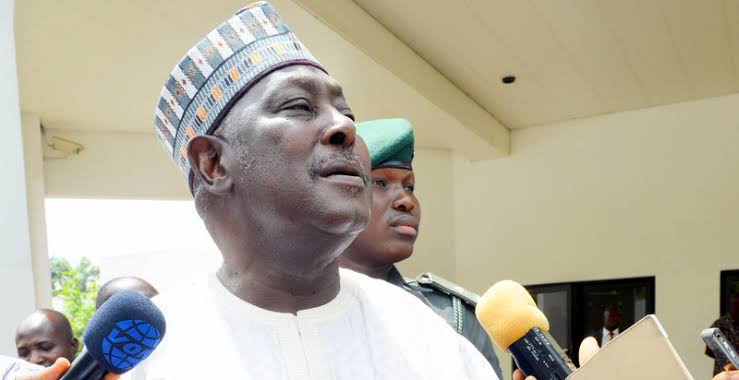The High Court of the Federal Capital Territory sitting in Abuja on Thursday has fixed October 6 and 7 for the continuation of hearing in the case against the former Secretary to the Government of the Federation, Babachir Lawal.
The former SGF, alongside his younger brother and a director in his company, Hamidu Lawal; an employee of the company, Sulaiman Abubakar; the Managing Director of Josmon Technologies Limited, Apeh Monday; and two companies, Rholavision Engineering Limited, and Josmon Technologies Limited, were sued by the Economic and Financial Crimes Commission.
The EFCC had brought 10 counts of fraud against the defendants bordering on conspiracy and unlawful award of N544m contract to companies Lawal had an interest in.
The counsel for the EFCC, Ofem Uket, had sought to tender a forensic report that was retrieved from the phone of one Musa Bulani to prove the charge against Lawal and the others.
The court had rejected the forensic report presented by the EFCC, while delivering the ruling on an objection raised by the defence counsel on the admissibility of the documents, held that the forensic report and the other computer-generated documents violated the provisions of the Evidence Act, 2004.
In court on Thursday, the third prosecution witness, the Deputy Director, Head of Digital Forensic Laboratory of the EFCC, Fatima Umar, while being cross-examined, told the court that as a digital forensic expert, she was aware of the activities of hackers and how they could take over a person’s device without coming in physical contact with the device nor obtain the owner’s consent.
Umar also stated that the phone that was obtained from Musa Bulani by an operative of the EFCC, Ibrahim Ahmad, was in good working condition when it was brought to her for data to be extracted from it and analysed.
According to her, the owner of the phone was brought to her lab, his consent was obtained and he provided the passcode to the phone.
When asked by Babachir’s counsel if as a digital forensic expert she could hack into another person’s phone without the person’s knowledge, she answered in the affirmative. However, she added that was not the situation in this case.
